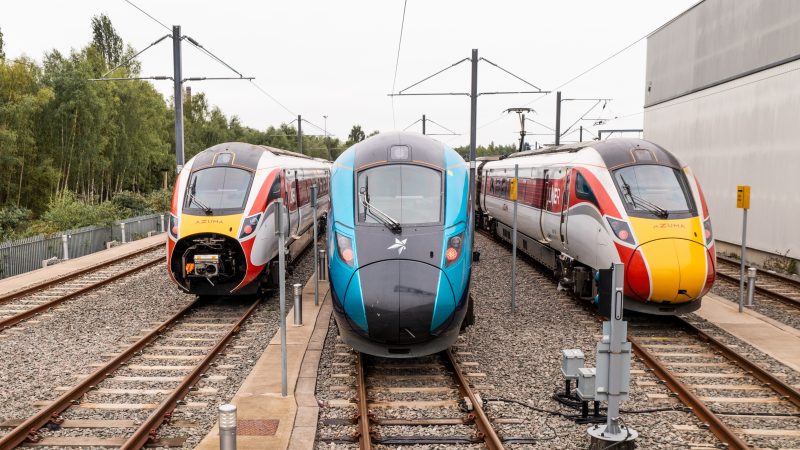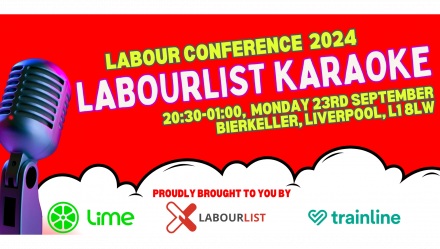
SPONSORED POST
The government faces a daunting challenge to delivering its five missions in the face of the severe financial constraints it has inherited. But it’s worth reflecting that not everything is doom and gloom; one area where the UK is currently thriving is its tech sector. Britain has one of the top three biggest tech sectors in the world, worth more than $1 trillion, and employing over 3m people.
Partnering successfully with UK tech companies can help the government improve every aspect of public life. Transforming the NHS, breaking down silos across Whitehall and kickstarting economic growth and productivity: all are more achievable through better technology. And nowhere is that better demonstrated than improving the railways.
Changes have been swift in the first few months of the new government, with action to resolve pay disputes and to begin the parliamentary process of nationalising train operators. But it’s a different process, that of implementing reforms and seeing results from them, that is always painfully slow. New bodies need to be formed, in the shape of Great British Railways and the Passenger Standards Authority. New teams created, and new working cultures established. This is a long journey.
Improvements on the way
But there are some real improvements which can be delivered on the way.
At Trainline we’ve been selling tickets online for over 25 years and throughout we’ve innovated new tech that was cutting edge for its time. In early years that was enabling web users to buy tickets online and developing print-at-home tickets.
Then it was introducing mobile tickets delivered instantly on your phone – which today has become the primary mode for collecting rail tickets. Now we’re extending that technology to season tickets too, so those paying the highest prices can also enjoy the simplest method of ticket collection.
But there’s much more we can do, and much of it quickly. Make it easier for people to claim the compensation they are owed if their train is delayed? This should be available at the touch of a button, or even better automated – no more forms to fill out. It’s an easy win for passengers and is technically possible, but requires a change to ticket conditions.
Ironically while Trainline is licensed to take money from travellers to pay for their ticket, we’re not currently allowed to hand it back when they are delayed. Instead we must direct travellers to the train operator: time-consuming for them, costly for the operator to process, and embarrassing for us. Let’s sort it – making it easier to get your money back is the kind of action that helps rebuild passenger trust in the railways.
And let’s accelerate the process of rolling out tech for passengers. Londoners have had the benefit of the Oyster system for over 20 years, and its ease of use is naturally a major attraction for transport planners across the rest of the country.
Growing options for passengers
But two decades of technical progress means more sophisticated options are now available.
Combine the original principles of tap-and-go technology with the power of modern mobile phones, and suddenly the traveller can take full control of their journey. Using a railcard and want your discount? Travelling in a group or with children? Need real-time travel information?
All this is possible through a modern pay-as-you-go system that uses mobile technology – and without the expensive upfront capital investment to install new card readers at every station across the country. Embrace tech partners, and the new administration can really power economic growth.
What’s more, tech can deliver significant social benefits too. People with accessibility issues face multiple hurdles to rail travel; buying tickets should not be one of them. There are 24m people with registered disabilities in the UK, but only 300,000 disabled railcard holders.
READ MORE: Sign up to our must-read daily briefing email on all things Labour
Technology has the power to improve the ticket buying process, simplify access to railcard discounts, and make it easier to book and trace travel assistance. Again these are all possible without significant investment, and without waiting for major industry reform to conclude.
It’s been heartening to hear Lou Haigh’s message that the Government wants to work with private sector partners where they add benefit. If we get the railways right the result it will boost economic growth, reduce inequality and cut the carbon emissions from transport.
That’s a destination worth striving for.
SHARE: If you have anything to share that we should be looking into or publishing about this story – or any other topic involving Labour– contact us (strictly anonymously if you wish) at [email protected].
SUBSCRIBE: Sign up to LabourList’s morning email here for the best briefing on everything Labour, every weekday morning.
DONATE: If you value our work, please donate to become one of our supporters here and help sustain and expand our coverage.
PARTNER: If you or your organisation might be interested in partnering with us on sponsored events or content, email [email protected].





More from LabourList
‘As metro mayors gain power, Labour must tighten political accountability’
Letters to the Editor – week ending 22 February 2026
‘The coastal towns where young people have been left behind by Whitehall’